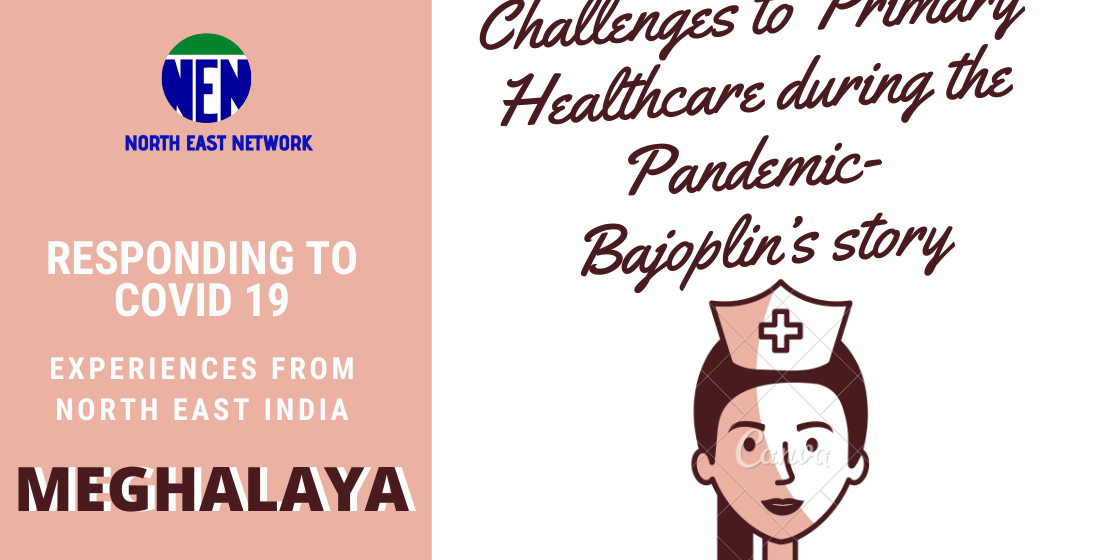Bajoplin Kharmudai, a resident of Madanryting locality in East Khasi Hills District is a NEN Outreach Worker and an Accredited Social Health Activist (ASHA) under the National Health Mission. On 29 March 2020, Bajop got a distress phone call from a woman (a previous Domestic Violence client), requesting her help to go back home, where her 4 children were waiting.
Previously, on 21 March 2020, the woman had gone to the hospital for the treatment of three of her children who were suffering from Fever and Diarrhoea. Five days later, when two of her children were discharged, India was under its first Phase of Lockdown due to the COVID 19 Pandemic. Using public transport was out of the question. She hired a taxi (at exorbitant rates now that the demand-supply equation was completely skewed) to take her children back home using all the allowances and savings that she had. However, on 29 March when the youngest child was discharged, she had no money left with her to go back home. Confused and scared, she called Bajoplin who immediately spoke to the hospital authority to arrange for 108 services to help transport the client and her child but could not convince them. Using her contacts, she started calling people who would be willing to help. After many such frantic calls, the Member of District Council (MDC) representative from her locality offered to help. He arranged for an ambulance run by the youth groups in the locality to help this woman get home to her children.
The preoccupation of the State with COVID 19 has led many other primary health care services to take a back seat, not to mention the restrictions of mobility that hit the poor the hardest.
Amid this pandemic, many daily wage workers and small-scale farmers like her are among the worst hit. With no livelihood options currently available, she is dependent on assistance from NEN and individuals. Our Outreach workers have been at the forefront since the lockdown was announced and have been working tirelessly to extend a helping hand during this crisis not only by ensuring that dry food rations are made available to those in need but also helping out domestic violence victims and survivors with psychosocial support.







